A Day in the Life of…Henry VIII’s Laundress
Welcome to 1538! We so often read about the lives of the Tudor nobility, but what goes on below stairs? Who would we meet, and what were their lives like? Are you as curious as I was to find out? By popular demand, I got myself an invitation to the court to meet Mistress Anne Harris, Henry VIII’s laundress.
Poised with your questions and more, I was keen to find out what life was like for her and just what the job of royal laundress entailed. So, let’s go back nearly 500 years and into the red-bricked corridors of the service wing at Hampton Court, where I caught up with Anne during a brief break from her work. Here is what she had to say:

Me: Good day to you, Mistress Harris.
Mistress Harris: Good day to you, Mistress Morris.
Me: Tell me, how did you come to get your job as Henry VIII’s laundress?
Mistress Harris: My husband was already in the employ of the King and serving below stairs at court. When a position became available, he, well, shall we say, ‘introduced’ me.* And here I am, in service of His Majesty, responsible for cleaning all his linen and ensuring that His Grace always has a plentiful supply of clean garments and bandages

Me: How much do you get paid, and is it a good salary? Does it allow you to live well?
Me: And no one frowns on this?
Mistress Harris: No! It is my prerogative; I am allowed to spend my wages as I wish.
Me: So you live at court?
Mistress Harris: Indeed, t’is so! I am wherever the king goes. As you know, the court moves about every six weeks or so. I have my own cart, and I pack it up with all that is required, whenever the court changes residence or goes on progress. The only time I am not with His Grace is if he rides out with a small group of his closest nobles and friends, a so-called riding court. Then, I would supply a chest of spare, clean linen for the king to use while he is away.
Me: So, what is a typical day like for you?
Mistress Harris: I am not sure there is a typical day! It all depends on what the King wants and what he is doing. However, we rise with the sun and break our fast. I get to work early and work 3-4 hours before dinner is served at 10.30, then back to work until supper, which is usually around 4-4.30 in the afternoon. If the work is finished, we are free to do as we please.
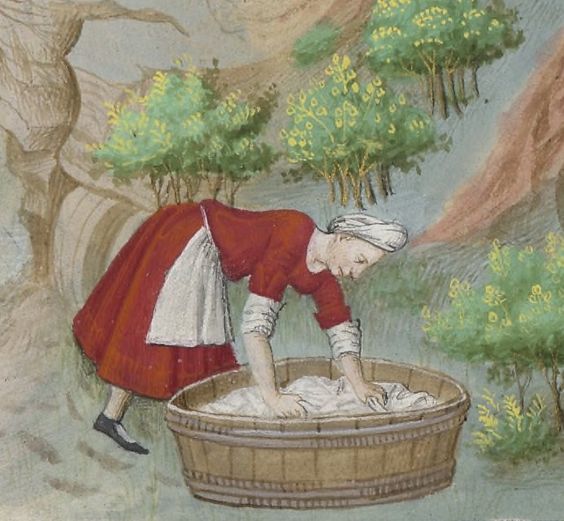
Me: But do you work every day or get a day off?
Mistress Harris: Well, of course, nobody generally works on Sundays unless they absolutely have to. I mean, some people do, like the cooks, for example; the court needs feeding after all! But I organise myself so that my work is done by Sunday so that I can attend church and take some rest. However, I will tell you, there is much murmuring about the country presently.
With the great changes to the church and the Act of Parliament that has been recently passed, the old saint’s days, the holydays – of which there were around 50 – are no longer holidays! So now we must work these days too, and I tell you this – it is very, very unpopular with the common folk. In fact, in some parts of the country, people are refusing to obey and are carrying on as they always have done.
Me: Yes, I see why they are unhappy! So, changing the subject, let’s talk about laundry itself. How would the king’s linen differ from, say, the linen you are wearing now?
Mistress Harris: Well, I am wearing two different types of linen, my smock, which is of medium grade and then the apron, which is much more coarse. The king, though, has very fine linen. All his garments are controlled by the Office of the King’s Wardrobe. Some of the King’s shirts, of course, are embroidered with gold or silver thread, and before those shirts are washed, the cuffs and collar need to be removed. Otherwise, the thread, which is very expensive, would tarnish.
Me: Really? I had no idea!
Me: What about linen embroidered with blackwork or redwork?
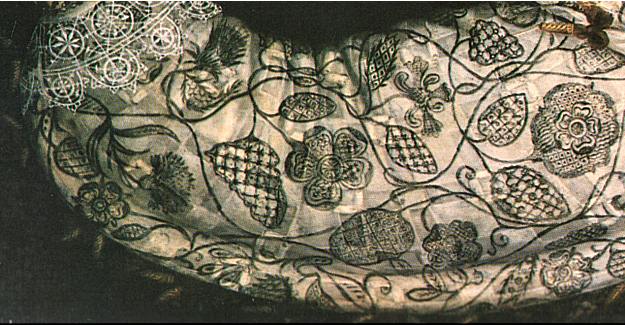
Mistress Harris: Ah, now that can be washed! You have to do it carefully, though, particularly the blackwork, as the dye is very unstable and can run. Oh, and the other thing you should know is that whilst the King’s outer clothes are simply sponged down or brushed clean, each garment is lined with linen. That lining gets unpicked regularly, and that linen, too is sent to me for washing.
Me: How interesting? I didn’t know that either. So, what do you use as a cleaning agent or agents? I hear urine is used. Is that right?
Mistress Harris: Yes, urine acts as a bleach and a stabilizer. It is collected very carefully. Part of my duty is to provide piss pots in the Council Chamber, so if the council meetings go on for a long time, the lords and gentlemen of the chamber do not have to leave the meeting but can simply relieve themselves in the pots provided. It is my responsibility to collect these. The urine is a handy – and free – source of raw materials for me to do the laundry!
Me: So, it is human urine that is used?
Mistress Harris: It is. It is allowed to stand for several days, and as it stands, it somehow magically turns into a really useful bleach. Oh, and you also lose the smell once it has been standing for a while, that is.
Me: So the clothes don’t smell of urine, I imagine, otherwise it wouldn’t be very pleasant!
Mistress Harris: No, not at all! Remember that we also add in the sweet-smelling herbs when washing linen, and if the weather is fine, we might dry it outside by, say, laying it over a rosemary bush. The prickly leaves act to keep the linen in place but also transfer its sweet scent.

Me: Now, here’s a question. Do you only use gentleman’s urine for cleaning the king’s shirts, or will anyone’s do?
Mistress Harris: Anyone. It is true that some people have various theories that the urine of virgins or people who drink wine, and not beer, is of better quality, but frankly, I haven’t noticed any difference.
Me: What other cleaning agents are used?
Mistress Harris: We use wood ash lye. In fact, we often refer to urine as ‘chamber lye’. Ordinary lye is made by filtering water through wood ash. This is repeated several times, and you end up with a strongly alkaline solution. This can be used on its own, or if you combine this lye with a fat, usually mutton fat, then sweeten it with herbs, you get soap.
Me: And do you make your soap or buy it in?
Mistress Harris: No, I make my own here at court. Interestingly, the Spanish have managed to manufacture a soap so fine that you can use it on your skin. It is called ‘Castille soap’. Queen Katherine brought it over with her from Spain, and for a while, it was quite popular but did not really catch on.
Me: So tell me a bit more about the ‘sweet herbs’ that you use.
Mistress Harris: Well, you can add sweet powders to the wash. Mostly, these are ground-up herbs, but one of the best ways to scent linen is in drying. I have already mentioned drying the cloth over scented herbs such as rosemary – and indeed, lavender is another alternative. Another good technique is to lay the linen on the grass. The grass not only sweetens the smell of the linen but helps bleach it, as does the action of the sun, of course.
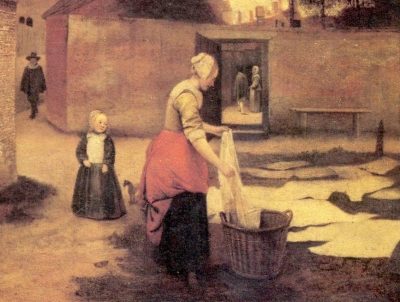
Me: And after the washing, there is the pressing of the clothes. How do you do this?
Mistress Harris: Well, we have three ways of doing it really. The first is for the larger pieces of linen, like bedsheets. We stretch these tightly across a large wooden frame, which literally pulls out any creases. For smaller items, you can either fold them very carefully and put them in a linen press, which is like a screw press; you know, similar to the one used by those who print books, or you can use a slickstone, which is a small, hand-held, solid glass press that is mushroom-shaped. You would use this to press down upon the linen to smooth out any creases.
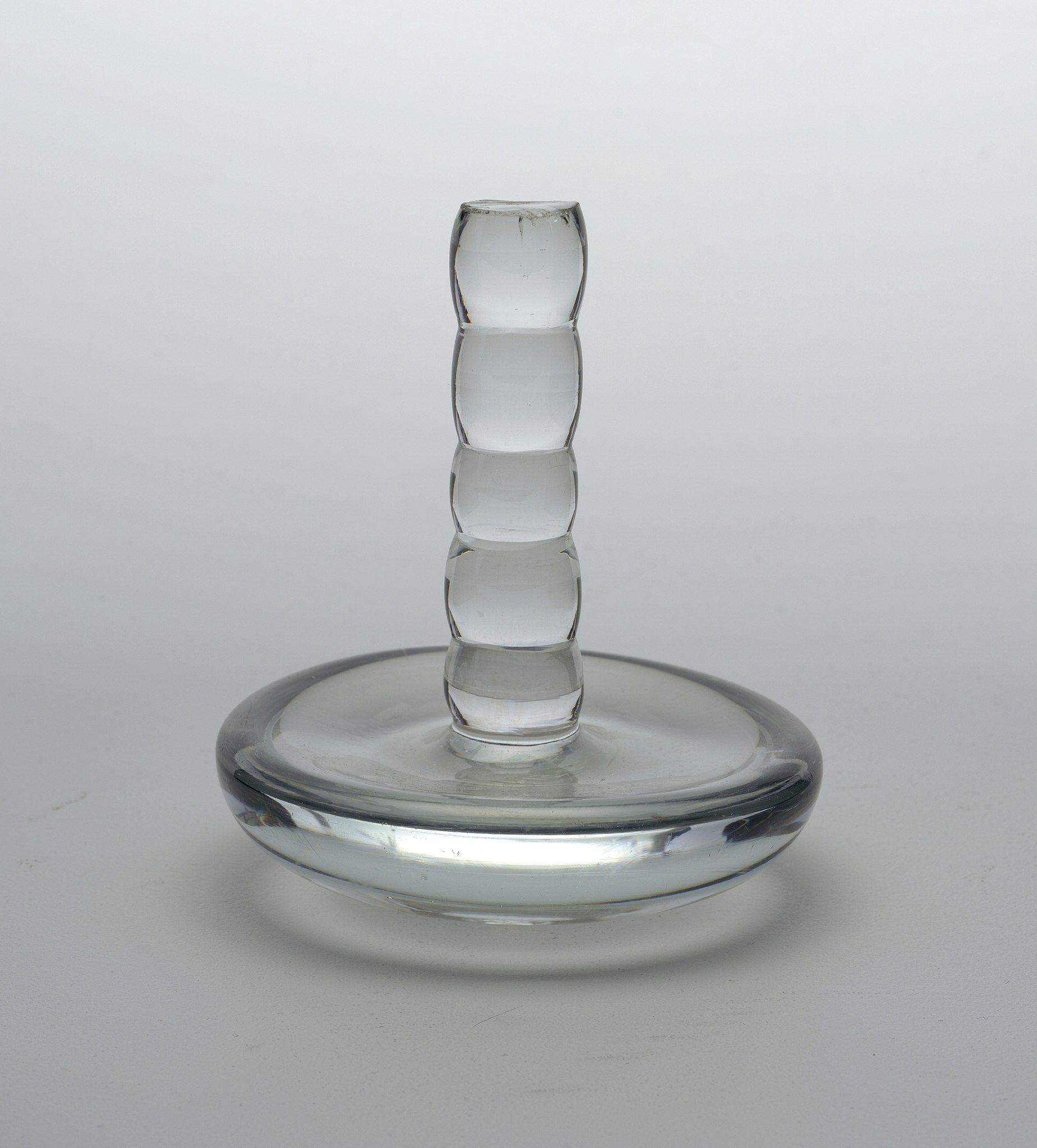
A Linen Smoother from the 1700s. A Tudor SlickStone would have been the same type of shape. Credit: Bequest of Walter Phelps Warren.From Wikimedia Commons. Image free to use.
Mistress Harris: No, you use it cold. Also, I should say I get a special allowance to buy slickstones. They are not the kind of everyday objects you can just go to the market and buy. So they are quite an expensive item.
Me: And what about the storage of the linen that you have cleaned? They are stored in presses..?
Mistress Harris: You fold the linen carefully and put them in a standard chest. I am allowed two of those. I pack all the clean items into one and send that up to the King’s Wardrobe. How they store it is up to them! That is not my responsibility. At the same time, I will receive a chest of dirty linen in return, ready for the next round of laundry.
Me: And what is your ‘worst’ job? Do you have one?
Mistress Harris: Well, as you may know (whispers to me whilst looking around to ensure we cannot be overheard), the King has some trouble with his leg. He has ulcers, which must be bandaged…and along with the King’s linen, I am also responsible for washing those bandages (Mistress Harris makes a face as if to indicate the foul smell which comes off those bandages).
Me: I imagine the expectation is that you cannot speak of such things openly.
Mistress Harris: Indeed no! Doing the King’s laundry is a very confidential thing, and discretion is required at all times. I mean, when one is washing sheets, you are privy to certain ‘information’ that others will have no knowledge of! Mistress Beatrice is the Lady Mary’s laundress. For many years there has been speculation about the Lady’s ‘fitness’ for marriage (she looks at me knowingly) and whether the Lady has regular cycles and might bear children. Of course, Mistress Beatrice knows more than most, but she remains very tight-lipped on the subject.

Me: I imagine being indiscreet could cost you your job, so keeping your council is an integral part of being a laundress in the royal household. I can see that a laundress who is a gossip might not last long at court! That makes me think: what does make a good laundress, do you think?
Mistress Harris: Over and above discretion, strength is definitely one!
Me: Do you have a board that you rub the linen across when cleaning it?
Mistress Harris: Yes, for some things, the smaller items mainly. For large items like sheets, you need to take your shoes and socks off and use your feet to pummel the laundry clean in a big tub called a bucktub. It is hard work!
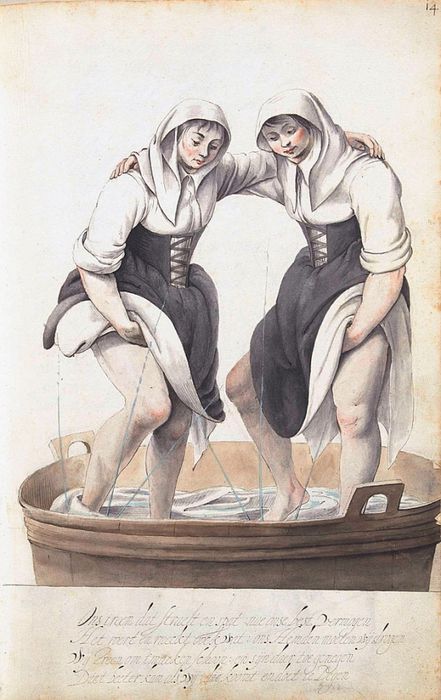
Me: To finish, I wanted to ask if you have seen the king yourself
Mistress Harris: Yes, I have at a distance. I mean, he does come down below stairs from time to time. It has been known for His Grace to come down and play at dice with the Sergeant of the Cellar! He likes to let his hair down occasionally!
Me: (Whispering) But what do you really think about him?
Mistress Harris: (Looks at me as if she doesn’t understand the question) He is the King. What else can I say?
Me: Are you overawed by him?
Mistress Harris: One thing that you realise when you do the laundry is that whilst he may be touched by the hand of God, he is also a man.
Me: So, he is just human!
Mistress Harris: Not ‘just’ human. He is God’s anointed after all – it is just that like any man, he too needs clean linen!
Taking our leave of Mistress Harris, Henry VIII’s laundress
So, now let us take our leave as we let Mistress Harris return to her work. All about me is the hustle and bustle as the below-stairs servants go busily about their duties. It has been a fascinating insight into the life of a Tudor servant at court, but as I climb up the stairs, in this instance, I can’t help but feel grateful for all my 21st-century mod cons!
If you wish to know more about life in the royal chambers, follow this link to read about Henry VIII’s Lost Apartments at Hampton Court.
If you wish to read more about Henry VIII follow this link to the Tudor Times.
If you have enjoyed this post, as ever, please do share on Facebook or Twitter. I love reading your comments, so let me know what you enjoyed and what you’d like to read more of. Happy washing!
*Note: it is not known precisely when or under what circumstances Anne Harris came to court and got her job as the King’s Laundress.
A Special ‘Thank you’
Thank you to Rosanna Summers, who has spent many years playing Anne Harris as Part of Past Pleasures Ltd., and who was interviewed in character for this blog post.



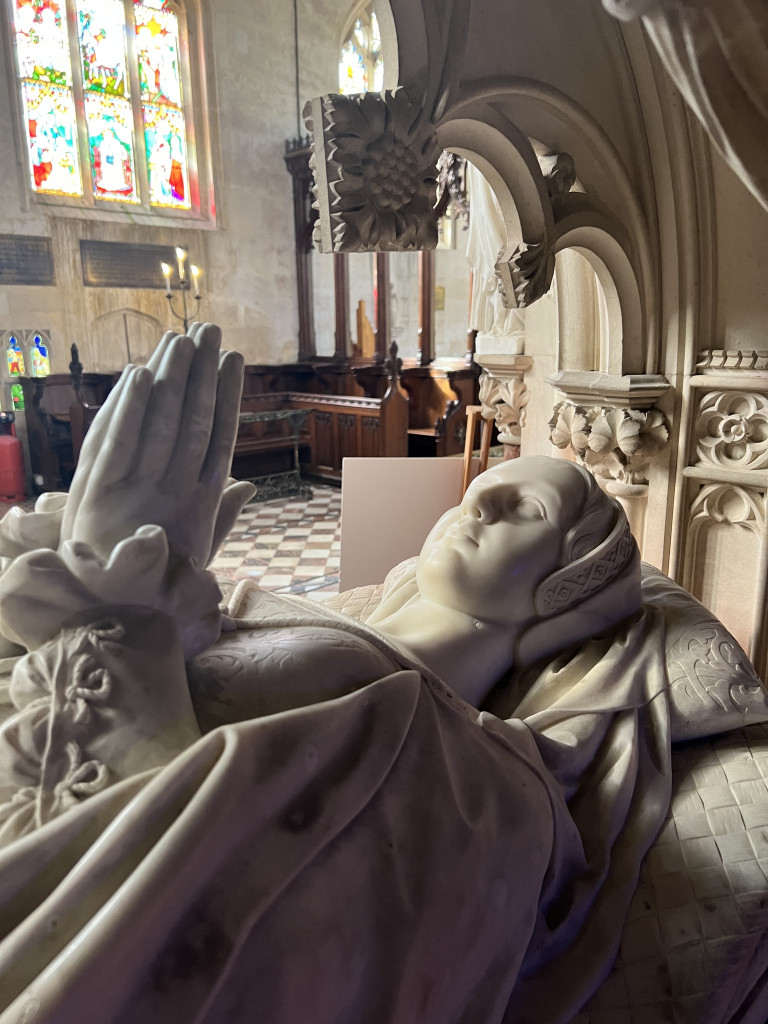


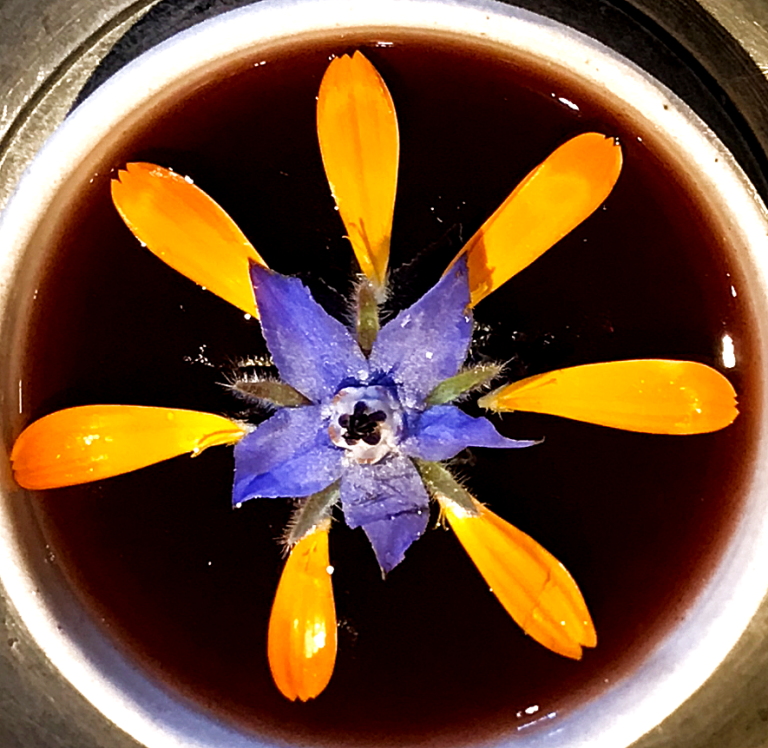
Very interesting. Thank you for sharing.
I was so excited to read this. I’m a Tudor lover of all things. The every day life of the royal servant has now been open to my education. Urine would never been on my list of cleaning products. Wonder why the body soap didn’t take off? As we use it daily now. To take apart cuffs, and other pieces of items would be so time consuming. I’m assuming their were others to reset them back on? I worried about the dark eyes running as many of my own quilt fabrics run after numerous washings. I can’t imagine the workings of a royal household. I thank you for bringing forth the ways of the past so we may appreciate the present.
Yes, somebody in the King’s Wardrobe or a seamstress would have sewn everything back together – and on a regular basis! It all sounds like such hard work. We are so lucky in that regard! Thanks for stopping by and leaving a comment. Sarah
Thank you for this info, I enjoyed reading. Thankful for my washer and dryer.
Yes, me too!
This was so fascinating. I just took a course on Royal Fashion and this was touched on. It is something I never really thought about. It must have been quite a task without modern conveniences. Nice to see they were compensated well.
Delighted you enjoyed it Jennifer! Quite an involved process. No wonder it took all day!
I think I must have just finished the same course and it has definitely sparked an interest. I just loved this post – so informative and interesting.
Thanks. So glad you enjoyed it.
Thank you ,it was very interesting to read . My Seven year old Grand- Daughter particularly enjoyed hearing about the urine being used for bleaching and washing .plus the pots being used so you didn’t have to leave the Meetings! Hoping this leads to a life long love of History , like her Grandmother. Needless to say ,I don’t think I will be using this method.
LOL! Me neither. Lovely to hear about your granddaughter. Thank you.
Thank you for this trip to the Tudors. I’m going to hug my washer and dryer now, and kiss my laundry detergent.
???? Is does make a person grateful, doesn’t it?
I found it fascinating that the outer garments which were only brushed and sponge cleaned were lined in linen. That makes great sense. I often wondered how those rich fabrics, which could not really be washed, would not be permeated with a very strong body odor ! Having the linen between the velvets, brocades etc. and the skin makes it seem viable.
Yes I must admit I found this answered a few questions for me too!
Love it! Thank you for sharing!
That’s wonderful to hear. Thanks for the feedback!
I loved reading this. It did a great job describing an overlooked aspect of day to day Tudor life.
Thank you, James!